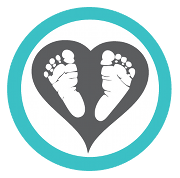The Nutrition-wise blog of Mayo Clinic (by Jennifer Nelson, M.S., R.D. and Katherine Zeratsky, R.D.,January 2009) suggests:
Don't forget to take those daily walks. They not only provide vitamin D but they give you good exercise which helps many systems of the body and you get a natural seratonin boost that acts as an antidepressant. Once the baby is born the sunshine benefits double and you get your figure back! It's win-win.During pregnancy, the active form of vitamin D increases significantly, particularly in the second and third trimesters. During this time, the baby's bones are developing, as are the brain, the nervous system, and the other organs.
Recently, a review published in the journal "Nutrition Reviews" looked at the research about vitamin D and maternal, fetal, and infant health. Although much more research is required, it appears that vitamin D contributes to improving pregnancy outcomes, such as decreasing the risk of pre-eclampsia, and improving length of gestation, birth weight, and infant bone mineralization. It also appears that sufficient vitamin D in early life may decrease the risk of health problems later in life such as schizophrenia, brain tumors, asthma, multiple sclerosis, and autoimmune diseases such as type 1 diabetes.
These findings don't mean you should run to the local pharmacy for a mega dose of vitamin D. In fact, the article also warns of potential adverse effects of too much vitamin D on the cardiovascular system and allergies. Much is still to be learned and hopefully gained from further research. But here's what I can share as safe advice now:
If you are pregnant:
- Take a prenatal vitamin. If you can't tolerate that, take a regular multivitamin. Look for one with at least 200 international units of vitamin D (the U.S. recommended daily allowance).
- The current tolerable upper limit is 2000 IU. The Canadian Pediatric Society actually suggests that this level may be appropriate for winter pregnancies.
If you have infants/children:
- Infants fed breast milk need a vitamin D supplement, 400 international units daily, according to a 2008 report of the American Academy of Pediatrics (AAP).
- Infants fed formula need a vitamin D supplement until they are drinking at least a liter of formula daily. Again, the AAP recommends up to 400 international units to complement the amount in formula. Consult with your child's doctor or dietitian.
- Older children drinking less than a quart of vitamin D-fortified milk daily need a vitamin D supplement, up to 400 international units daily.
- Infants and children are at greater risk of toxicity — so be cautious with your dosing and administration.
























No comments:
Post a Comment
This blog only reviews comments before posting to avoid hijacking. We will respond to comments Mon-Thurs but we are closed Fri-Sun and legal holidays.